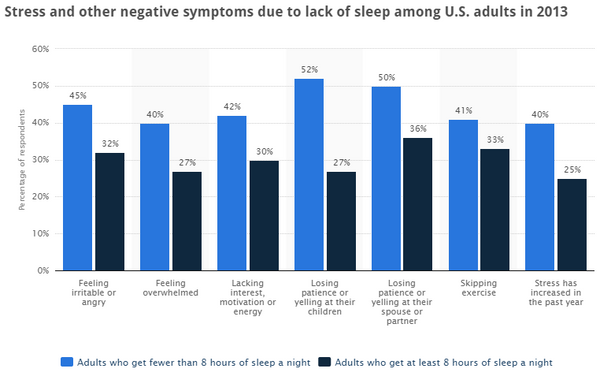Stress is primarily a physical response to perceived danger. When stressed, the body switches to ‘fight or flight’ mode, releasing a complex mix of hormones and chemicals such as adrenaline, cortisol and norepinephrine to prepare the body for physical action.
We have a diagram that covers most of your body’s fight or flight responses in our blog post ‘Exploring the 'fight-or-flight' response’.
Usually, once the threat or difficulty passes, these physical effects fade. But if you're constantly stressed, your body stays in a state of high alert and you may develop stress-related symptoms such as feeling overwhelmed, racing thoughts, difficulty concentrating or headaches.
There are many amazing ways to help reduce stress over time, but here at doppel we’re especially interested in helping people to get through stressful situations that they can’t escape - like a job interview, a deadline, or even a long-haul flight. Here’s a collection of our favorite tools to deal with stress in the moment.

Tip #1 - Deep breathing
If you’re feeling overwhelmed, find a quiet space and take some deep, slow breaths. When you breathe deeply, you’re mimicking the way you feel just before you fall asleep or when you first wake up - two of the moments when the body is most relaxed. Your brain responds to these physiological signals and your heart rate and blood pressure will begin to fall. It doesn’t matter that you’re not in bed, the feedback loop between your brain and body is an innate biological link and it will help you to calm down. We’ve shared some tips on this previously and you can find them here.

Tip #2 - Stay hydrated
There is a clear link between water and stress reduction. Research has shown that even mild dehydration can increase cortisol levels - one of the hormones the brain releases to trigger your fight or flight response.

Tip #3 - Go phone free
We’ve blogged before about increased stress levels for phone checkers. In the 2017 report “Stress in America”, the American Psychological Association found that US adults who report that they constantly or often check their email, texts and social media accounts are significantly more stressed than those who don’t check them as frequently. If you think you might be a frequent checker than having a break from your phone is one easy thing you can do to help.

Tip #4 - Plan to get an early night
We all know that sleep is good for you, so keep this in mind when you’re planning your week. Too many late nights in a row will leave you feeling more stressed.
According to the National Sleep Foundation’s Sleep in America® Poll 60% of American adults don’t take into account how much sleep they’ll need the night before when planning their day.
This graph shows exactly why sleep is important. It shows the difference in stress levels between adults who sleep for more than eight hours a night, and adults who get less than this:

Source: Statistica
Tip #5 Take five minutes to think positive
Something as simple as writing down three good things that have happened to you that day has been shown to have a significant impact on happiness. In a study of nearly 600 people conducted by researchers at three US universities, reflecting on positive experiences boosted happiness both in the short term and over the next six months. So if you’ve got a couple of minutes, grab a pen and some paper, or even write your highlights on your phone.

